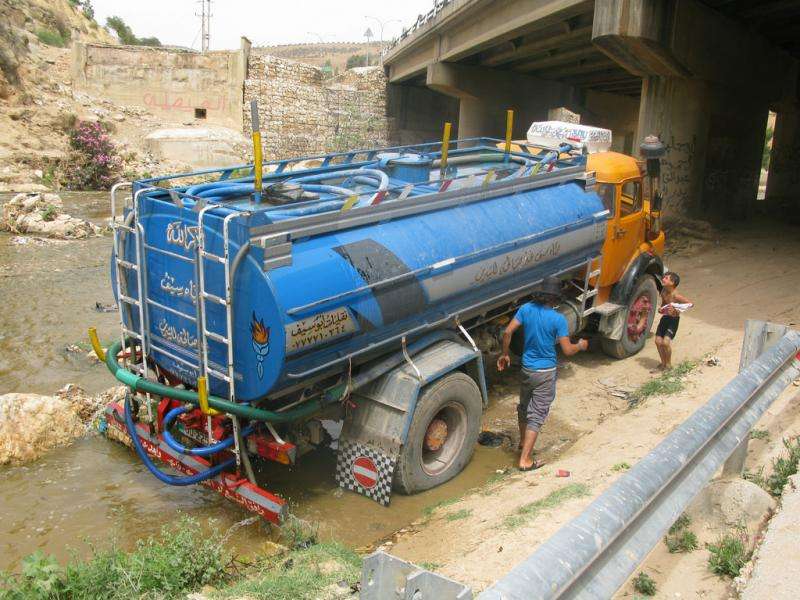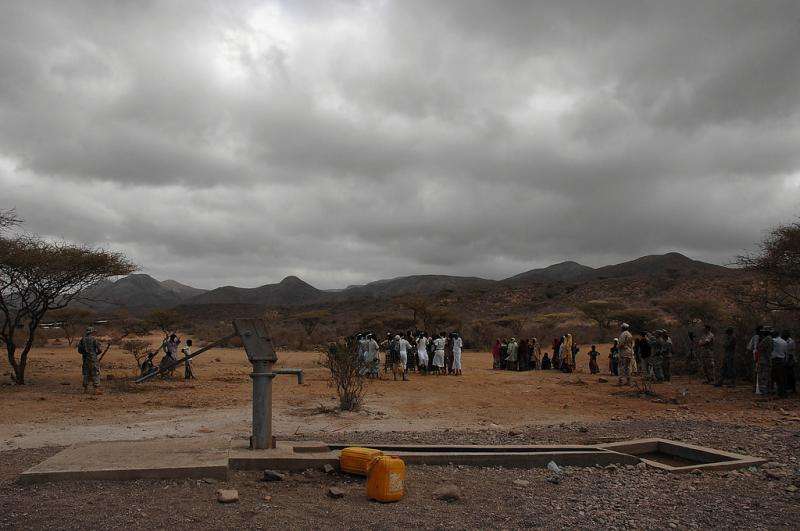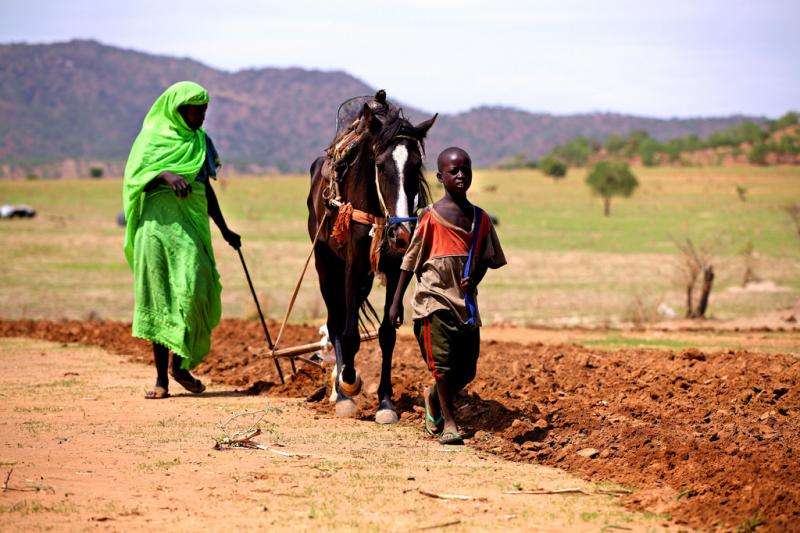Water vulnerability threatens developing nations' stability, researchers find

Many nations and regions already facing uncertain political futures must contend with a growing threat to stabilization: freshwater vulnerability.
The finding comes from a new study co-authored by researchers in Stanford's Global Freshwater Initiative that weighed a variety of contributing factors, such as regulatory enforcement, corruption, transboundary competition and water transported "virtually" in agricultural products, as well as traditional constraints like scarcity and infrastructure. Among its striking findings:
- Institutional issues are the most common factors generating water supply vulnerability, affecting nearly 40 percent of the 119 low-income nations studied. The most prevalent issue was corruption, which can paralyze water development projects and regulation.
- Patterns of vulnerability are often similar in countries that would otherwise seem to have little in common.
- A lack of precipitation does not necessarily equate with water supply vulnerability.
By the study's measures, the world's most water-vulnerable countries are Jordan, Yemen and Djibouti. The three countries have much in common, including low rainfall, limited surface water storage, excessive groundwater mining, high dependence on waters shared by neighboring countries and the importation of most food calories.

In light of ongoing conflicts in the Middle East and North Africa, the report provides a roadmap for how influential countries such as the United States could help the region's vulnerable nations steer clear of destabilizing water crises, said co-author Steven Gorelick, the Cyrus Fisher Tolman Professor in the School of Earth, Energy & Environmental Sciences and a senior fellow at the Stanford Woods Institute for the Environment.
"Jordan is a peaceful and generous country that has absorbed hundreds of thousands of Syrian refugees," Gorelick said. "The U.S. has an opportunity to help Jordan deal with the consequent stress of inadequate water supply, which will improve its political stability, so it's really in our best interest to do so."
Countries in the Middle East and North Africa are over-pumping groundwater. In Jordan, where people depend on groundwater for 80 percent of their freshwater, levels are dropping 3 feet each year and will likely be depleted by 30 to 40 percent within the next 15 years. Refugee migrations from conflict-torn lands and global warming-related extreme weather will likely worsen the situation. A related Global Freshwater Initiative study finds that 45 percent of major cities solely dependent on surface water will be unable to simultaneously meet human, environmental and agricultural water demands by 2040.

The Global Freshwater Initiative is coordinating the Jordan Water Project, an international, interdisciplinary research effort aimed at developing new approaches for analyzing strategies to enhance the sustainability of freshwater resources in Jordan and, ultimately, arid regions throughout the world. The project, headed by Gorelick, is focused on developing a comprehensive national hydro-economic model to evaluate new supply options and demand strategies.
Water vulnerability is a crucial issue as countries attempt to slake the thirst of growing populations. In the past 50 years, the amount of water withdrawn for human use has tripled. Access to water is a national security matter, crucial to agriculture, industry and ecosystems.
"We have often incorrectly assumed that the lessons of water challenges in one country are not transferable to others," said study co-author Barton "Buzz" Thompson, the Robert E. Paradise Professor in Natural Resources Law and the Perry L. McCarty Co-director of the Stanford Woods Institute.
To the contrary, the study suggests a range of commonalities that decision-makers and aid agencies would do well to consider. For example, Vietnam, Guatemala and Sri Lanka were found to share vulnerability factors such as high population densities, high numbers of species needing protection, low governmental transparency and a lack of water regulation enforcement mechanisms. Many countries of North Africa and South Asia share struggles with water quality threatened by poor sanitation, low volumes of renewable freshwater and high dependency on neighboring countries for freshwater.
-

Camels transport the goods and people of Turkmenistan across a land which is 80% desert. Renewable groundwater accounts for only 1% of the country's total freshwater supply, which is highly dependent on inflow from upstream neighbors. -

The Sattola slum in Dhaka, Bangladesh, where demand for freshwater increases with the size of the population. Over the past 50 years, the global population has doubled while the total volume of water withdrawn for human use has nearly tripled.
More information: Julie C Padowski et al. Assessment of human–natural system characteristics influencing global freshwater supply vulnerability, Environmental Research Letters (2015). DOI: 10.1088/1748-9326/10/10/104014
Julie C Padowski et al. Global analysis of urban surface water supply vulnerability, Environmental Research Letters (2014). DOI: 10.1088/1748-9326/9/10/104004
Journal information: Environmental Research Letters
Provided by Stanford University


















